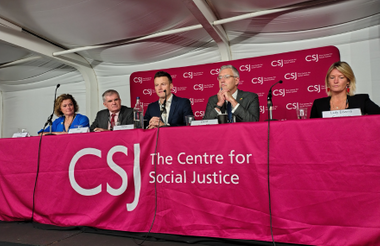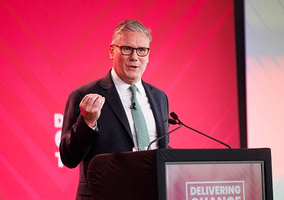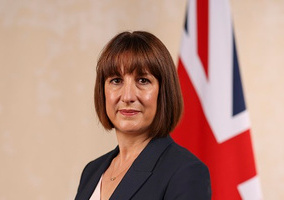A Labour MP and former charity leader has said that the working relationship between the sector and government is “often poor”, with civil society sometimes forgotten about in the UK.
Speaking at the Labour Party Conference in Liverpool yesterday, David Smith said that “we’re very poor at times in this country at taking civil society seriously”.
Smith, who spent over two decades working in the charity sector, told a fringe session hosted by the Centre for Social Justice and Charities Aid Foundation: “The great [political] battles of the last 100 years in our country have largely been about what’s the place of the market and what’s the place of the state.
“And I don’t need to rehearse any of that for you; that’s pretty obvious. I think most of the time, or a lot of the time, certainly, it’s civil society that’s forgotten about.
“And yet, civil society is the oil that makes everything work, and that’s whether you’re a committed neoliberal Thatcherite, or whether you’re a committed statist left-wing guy or gal.”
Charities’ outcomes ‘taken for granted by government’
Smith described civil society as “rooted in place, expert, inherently soulful and mission-led, light touch, cheap, person-centric and holistic, there for the long term, not motivated by the financial bottom line, often loss leading for that reason”.
“You could go on and on with the superlatives, but these are some of the reasons why civil society has such an important role in transforming the state of the country, and not just of the country, of communities up and down the country,” he said.
He saw the “great outcomes” of charities when he led homelessness charity Oasis Community Housing, adding that often, “that historically has been taken for granted by government”.
“If we think about how charity works with government and civil society works with government, it’s often poor,” said Smith, who is also the UK’s special envoy for freedom of religion or belief.
“That’s not to say that it can’t be great – and there have been some good examples from the speakers already – but that, I think, is the context […].
“That’s relevant because civil society, charities have an incredible resilience, nevertheless, and very, very often, they have wonderful ways of securing funding that they need in order to do the work that they do.”
He added: “If civil society, charities do such wonderful work and important work and long-term work and work that’s done off their own back, with the community and their supporters, what can we do to create three-way partnerships between philanthropy, charity and government?
“What do we need to do to switch our mindset about what that’s like? If we can do massive and brilliant projects I’m enthusiastic about like the Great British Energy, if we can create a National Wealth Fund and say to business, ‘match fund our massive infrastructure investments’, why can’t we crowd in billions to address poverty in this country with civil society, with charity?”
‘Hard to do good in this country’
Also speaking at the session was Edwina Grosvenor, a justice system reformer who established One Small Thing, a charity whose mission is to redesign the justice system for women and their children.
Grosvenor, who also founded the Clink, argued that as a philanthropist, it is “so hard to do good in this country”.
Citing the example of One Small Thing’s Hope Street, a Hampshire-based residential community and alternative to custody for women and their children, she said the model could be scaled and replicated nationally.
She said that government officials, including former justice secretary Shabana Mahmood, were keen to reduce the number of women in prison.
“So, as a philanthropist, I raise the money, I put the money in, I lean on my family. We get something up, built. We base the cost on the square footage of a good state primary school,” she said.
“I wanted to prove that you can build well and not spend a ridiculous amount of money.
“And I have to say, my experience through all of that hasn’t been entirely positive in the sense that I come back to the view [that] it’s so hard to do good in this country.
“We’re two years into operations. It’s going well. I’m working well with colleagues, civil servants across the piece, but it’s so hard.”
She added that while philanthropists donating more money was important, she did not believe that the government “wants to come to the table and match fund”.











